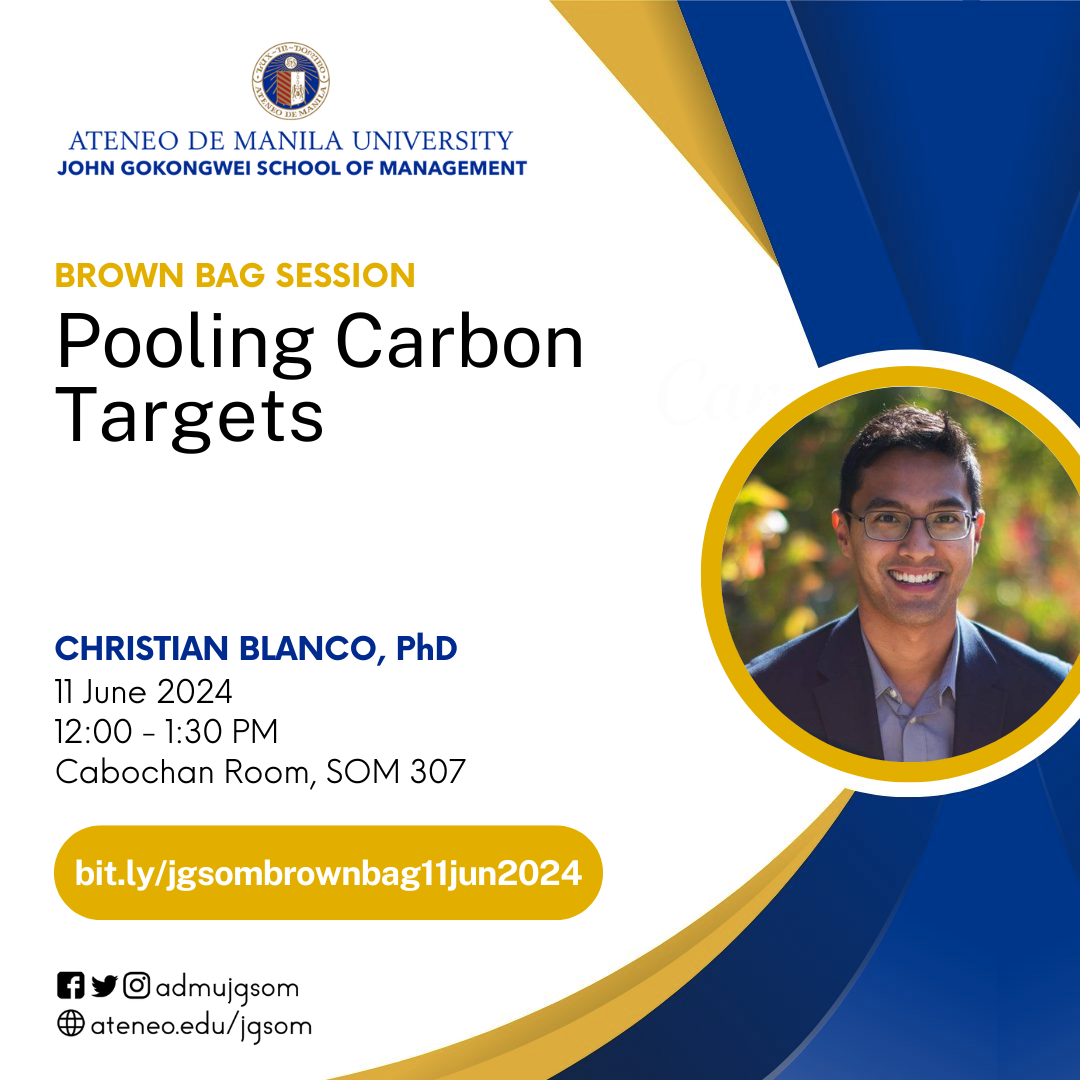Pooling Carbon Targets
The John Gokongwei School of Management invites you to a Brown Bag Session on "Pooling Carbon Targets". Our presenter is Dr Christian Blanco, Assistant Professor of Operations and Business Analytics at the Fisher College of Business, Ohio State University.

This will be held on Tuesday, 11 June 2024 from 12:00 - 1:30PM at the Cabochan Room, SOM 307 and online via Zoom.
Please register here: https://bit.ly/jgsombrownbag11jun2024
Brief Description of the Topic:
Many corporations now set voluntary direct (Scope 1) and indirect (Scope 2) carbon emissions reduction targets, but low success rates reflect that managers lack experience in designing these targets. Does pooling Scope 1 and 2 targets increase the likelihood of success? Does pooling carbon targets increase or decrease costs for the company? We use ten years of data collected by the CDP (formerly the Carbon Disclosure Project) to explore our research questions. Our results show that pooled targets lead to a 23% larger reduction in Scope 1, on average, compared to a standalone Scope 1 target. Pooled targets result in a 37% larger decrease in Scope 2 emissions than a Scope 2 target alone. We find no evidence to suggest that pooling carbon targets increase operating or capital expenses.
About the Speaker:
Christian Blanco is an assistant professor of Operations and Business Analytics at the Fisher College of Business at The Ohio State University. He completed his Ph.D. at the UCLA Anderson School of Management and received his undergraduate degrees in Mathematics and Environmental Economics at UC Berkeley. His research domain is sustainable operations management. His research has been published in Manufacturing and Service Operations Management, Production and Operations Management, Risk Analysis, and Energy Policy. Christian is an Associate Editor for the Journal of Operations Management. He is among the first scholars in his field to apply text analytics in sustainable Operations Management (OM). He has also implemented text analysis in other domains of OM, such as pharmaceutical manufacturing. Christian was a National Science Foundation Graduate Research Fellowship recipient from 2011-2014. Prior to pursuing his Ph.D. at UCLA, Christian was part of the Renewable and Appropriate Energy Lab at UC Berkeley. He collaborated with a team of scientists in developing a model called “SWITCH” that identifies the least-cost combination of energy technologies that will provide low-carbon electricity in 11 western states. Christian grew up in Alabang, Muntinlupa.
